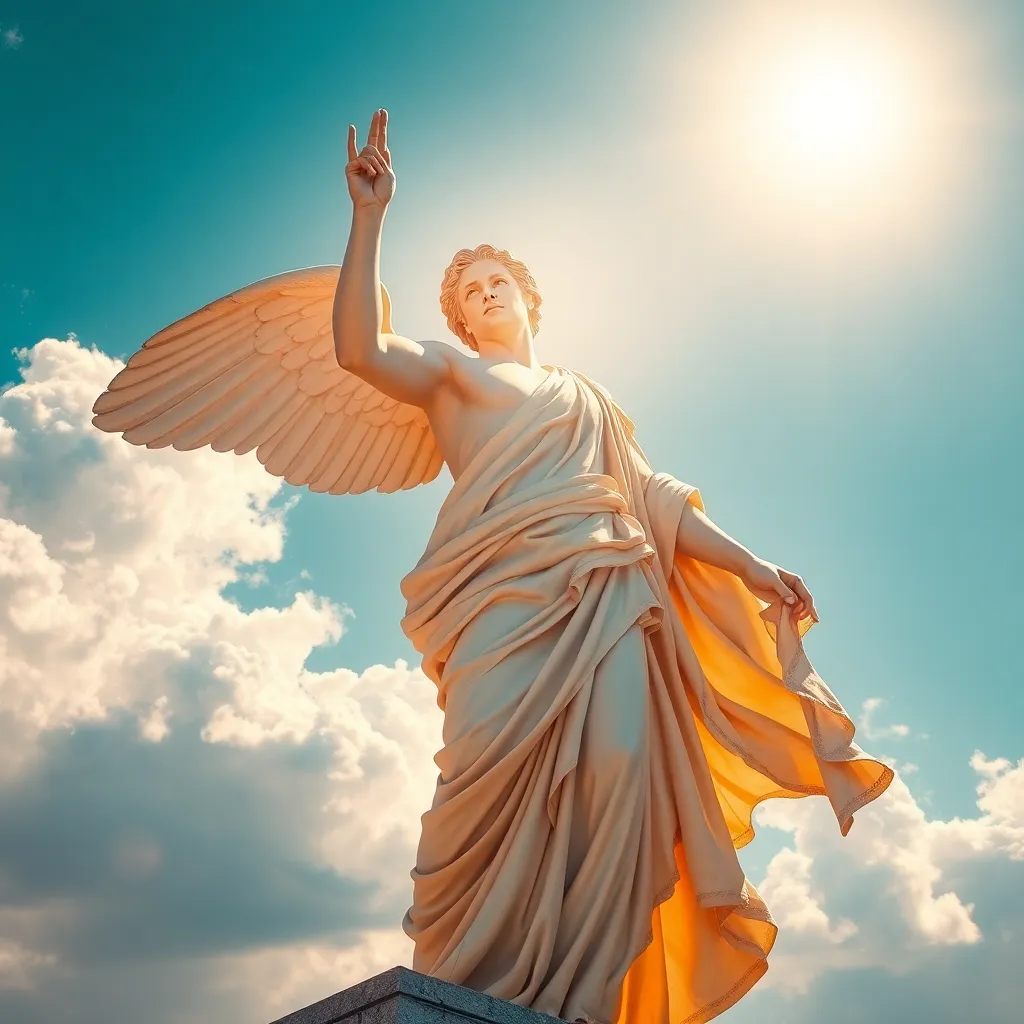The Symbolism of Apollo: Light, Truth, and Knowledge
I. Introduction to Apollo: The Multifaceted Deity
Apollo stands as one of the most significant figures in Greek mythology, embodying a multitude of attributes that reflect the complexity of the human experience. Revered as the god of light, truth, knowledge, and the arts, Apollo’s influence extends beyond the ancient world into contemporary culture. His multifaceted nature allows for a rich exploration of various themes, including the pursuit of truth, artistic expression, and the duality of existence.
II. Apollo as the God of Light
Apollo’s association with light is profound and multifaceted. He is often depicted as the god who brings the light of day, illuminating the world and dispelling darkness. This connection to sunlight and illumination symbolizes hope, clarity, and enlightenment.
In ancient cultures, light carried significant symbolic meaning:
- Enlightenment: Light represents knowledge and the awakening of the mind.
- Purity: The brightness of light is often associated with purity and goodness.
- Divine Presence: Light signifies the presence of the divine and the sacred.
For Apollo, light is not merely a physical phenomenon but an essential aspect of his identity. He is often portrayed with a radiant crown or driving a chariot across the sky, reinforcing his role as a bringer of light and illumination.
III. The Pursuit of Truth: Apollo’s Oracle at Delphi
The Oracle of Delphi, one of the most important religious sites in ancient Greece, serves as a crucial aspect of Apollo’s legacy. This sanctuary was dedicated to Apollo and housed the Pythia, the priestess who delivered cryptic prophecies inspired by the god.
Apollo’s connection with prophetic wisdom underscores his role as a seeker and revealer of truth. The Oracle was considered the center of the world, where individuals from all walks of life sought guidance on matters ranging from personal dilemmas to state affairs. Through the Oracle, Apollo embodies the quest for truth that transcends time and culture.
IV. Knowledge and the Arts: Apollo’s Influence on Culture
Apollo is also celebrated as the patron of the arts, including music, poetry, and philosophy. His influence on these domains highlights the intrinsic relationship between knowledge and artistic expression. Art, in many ways, serves as a medium through which truth and knowledge are explored and communicated.
Key figures in history have drawn inspiration from Apollo’s ideals:
- Musicians: Composers and musicians have sought to emulate the harmony and beauty associated with Apollo.
- Poets: Many poets have invoked Apollo as a muse, seeking inspiration for their works.
- Philosophers: Philosophers have looked to Apollo as a symbol of rational thought and inquiry.
The arts, in both ancient and modern contexts, serve as a reflection of Apollo’s enduring influence on culture and the human experience.
V. Duality of Apollo: Destruction and Healing
While Apollo is often celebrated for his positive attributes, he also embodies a dual nature as both a destroyer and a healer. This complexity adds depth to his character and highlights the multifaceted nature of light and knowledge.
The symbolism of light can represent both enlightenment and the potential for destruction. In myths, Apollo’s arrows, often associated with plague and death, illustrate his capacity for destruction. For example:
- The myth of Apollo and the Cyclopes, where he avenges the death of his son by killing the Cyclopes with his arrows.
- The story of Apollo sending a plague to the Achaeans as punishment for Agamemnon’s actions in the “Iliad”.
Conversely, Apollo is also revered as a healer. He was associated with the healing arts and often represented as a god who could cure diseases and afflictions. This duality reflects the complex relationship between knowledge, power, and morality in the pursuit of truth.
VI. Apollo in Modern Context: Reinterpretations and Legacy
In contemporary culture, Apollo’s symbolism has evolved and found new interpretations across various domains, including literature, art, and psychology. His association with enlightenment and rationality resonates in modern discussions about the importance of knowledge and truth.
Some notable influences include:
- Literature: Writers and poets continue to reference Apollo in their works, often as a symbol of inspiration and artistic pursuit.
- Art: Visual artists draw on Apollo’s imagery to convey themes of light and knowledge.
- Psychology: Apollo’s quest for truth is mirrored in modern psychological theories that emphasize the importance of self-awareness and understanding.
The lasting impact of Apollo on modern cultural narratives underscores his relevance in the ongoing pursuit of truth and knowledge.
VII. Comparative Symbolism: Apollo and Other Deities
When examining the symbolism of Apollo, it is insightful to compare him with deities from other cultures who share similar attributes. For example:
- Ra: The Egyptian sun god, symbolizing light and creation, similar to Apollo’s association with sunlight.
- Odin: The Norse god of wisdom, who sacrifices for knowledge, reflecting the pursuit of truth seen in Apollo’s character.
- Hermes: The Greek god of communication and knowledge, representing the dissemination of truth and information.
These comparative analyses reveal how different cultures interpret light, truth, and knowledge through their own mythologies, enriching our understanding of these universal themes.
VIII. Conclusion: The Enduring Symbolism of Apollo
In summary, Apollo’s representation of light, truth, and knowledge encapsulates a broad spectrum of human experience and aspiration. His enduring symbolism resonates deeply in today’s world, reminding us of the importance of seeking truth and knowledge in our lives.
As we navigate an increasingly complex landscape, the ideals embodied by Apollo encourage us to strive for enlightenment, embrace artistic expression, and confront the dualities inherent in existence. The legacy of Apollo remains a powerful testament to the human quest for understanding and meaning.




